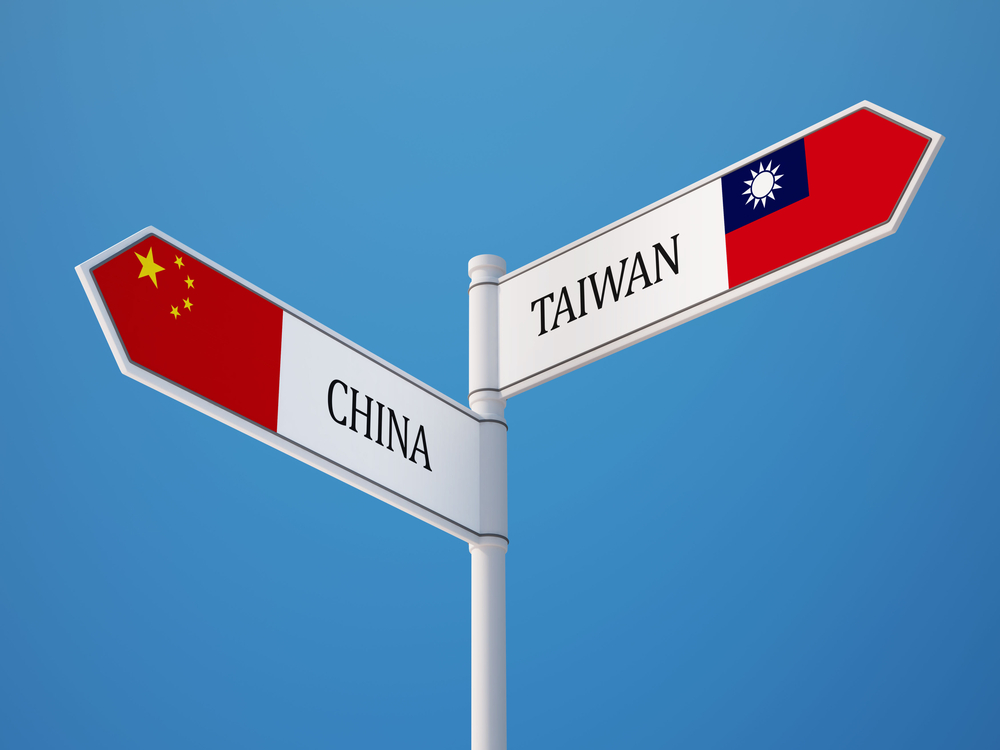Taiwan’s KMT Chairman Chu Goes to Beijing

Please note that we are not authorised to provide any investment advice. The content on this page is for information purposes only.
China–Taiwan cross-Strait relations are under renegotiation in the face of significant domestic developments in Taiwan. These developments include the ruling Kuomintang’s (KMT) resounding defeat in the local ‘nine-in-one’ elections in November 2014, the influence of the Sunflower student movement, and the predicted opposition Democratic Progressive Party (DPP) win in the January 2016 presidential and legislative elections.
China–Taiwan cross-Strait relations are under renegotiation in the face of significant domestic developments in Taiwan. These developments include the ruling Kuomintang’s (KMT) resounding defeat in the local ‘nine-in-one’ elections in November 2014, the influence of the Sunflower student movement, and the predicted opposition Democratic Progressive Party (DPP) win in the January 2016 presidential and legislative elections.
Against this backdrop, on 4 May 2015 the Chairman of the KMT, Eric Chu, visited Beijing to meet with Chinese President Xi Jinping. This was only the second time that the leaders of the KMT and Chinese Communist Party (CCP) have met in Beijing since 1949.
Following the talks, Chu expressed hope that Taiwan could play a larger global role based on the 1992 ‘One China’ consensus — an agreement that there is only one China that includes Taiwan, but both sides are free to adopt their own interpretations of what ‘One China’ means. He spoke of expanding Taiwan’s international role through increasing participation in regional economic organisations, including the mega-regional trade deal, the Regional Comprehensive Economic Partnership (RCEP).
China welcomed such moves as long as they did not violate the 1992 consensus. For instance, in April 2015, Taipei’s application to join the Chinese-led AIIB was rejected by Beijing, as it does not recognise Taiwan as a sovereign state. Both sides also voiced disagreement regarding whether it was appropriate to list Taiwan under the name of ‘Chinese Taipei’.
The Xi–Chu meeting highlighted that the KMT is still Beijing’s preferred partner. Moreover, it was probably meant to send a message to the Taiwanese electorate that their political preferences could help determine the future direction of Taiwan–China relations. China’s first White Paper on military strategy further reiterated that China still sees the ‘Taiwan independence’ movement as the biggest threat to the ‘peaceful development of cross-Strait relations’. Keeping up the military threat alongside preferential economic agreements for Taiwan have been major components of China’s strategy to influence Taiwan’s behaviour in its favour.
However, efforts by the KMT and the CCP to influence Taiwan’s electoral politics by playing the ‘China card’ are unlikely to bear fruit. Taiwan’s growing civil society — evidence of a consolidating democracy — has been calling for more transparency and honesty, particularly regarding cross-Strait agreements. Chu was elected Chairman on the back of President Ma Ying-jeou’s widely criticised administration’s poor performance at the polls. The backlash at the November 2014 local elections was widely interpreted as a rebuke to Ma’s China-friendly policies that many believed not only undermined Taiwan’s independence but also disadvantaged Taiwan’s small- to medium-sized businesses, the backbone of Taiwan’s economy. For many Taiwanese, the Ma government’s China-friendly policies did not deliver the promised personal prosperity.
While some argue that ‘cross-Strait harmony is still the dominant concern for the Taiwan electorate across all political preferences’, socio-economic concerns — particularly for the youth — are dominating the political agenda. Recognising this, Chu has sought to convey a reformist image, brought in a completely new party leadership team and discussed constitutional changes to address public concerns.
Nevertheless, in the eyes of many Taiwanese, the KMT’s strong China focus has created an unhealthy link between the stability of cross-Strait relations and possible solutions to socio-economic problems. Taiwan’s high economic dependence on China — combined with continued economic stagnation — has generated fears of political coercion from Beijing. Consequently, many Taiwanese believe that China-friendly policies have had the dual negative impact of worsening Taiwan’s economic woes, while also promoting Beijing’s agenda of (re)unification to the point where Taiwan might become ‘another Hong Kong’.
The stability of the cross-Strait status quo is deceptive. It is contingent on Taiwan’s domestic politics, and the promise that (re)unification is more beneficial to people’s livelihoods than sovereignty. The Taiwanese electorate no longer views a vote for the KMT as a vote for stable relations with China, or a vote for the DPP as a vote for de jure independence — as evidenced by the election of Ko Wen-je, an independent, as the mayor of Taipei.
Rather, Taiwanese voting patterns reflect disillusionment with both the KMT and the DPP for failing to find bipartisan solutions to endemic issues such as economic stagnation, widening income inequality and a rapidly ageing population. While Chu’s Beijing visit signalled that the KMT could maintain positive relations with the CCP, cross-Strait issues are a second-order priority for the Taiwanese people.
Taiwan: voting for stable relations with China? is republished with permission from East Asia Forum




